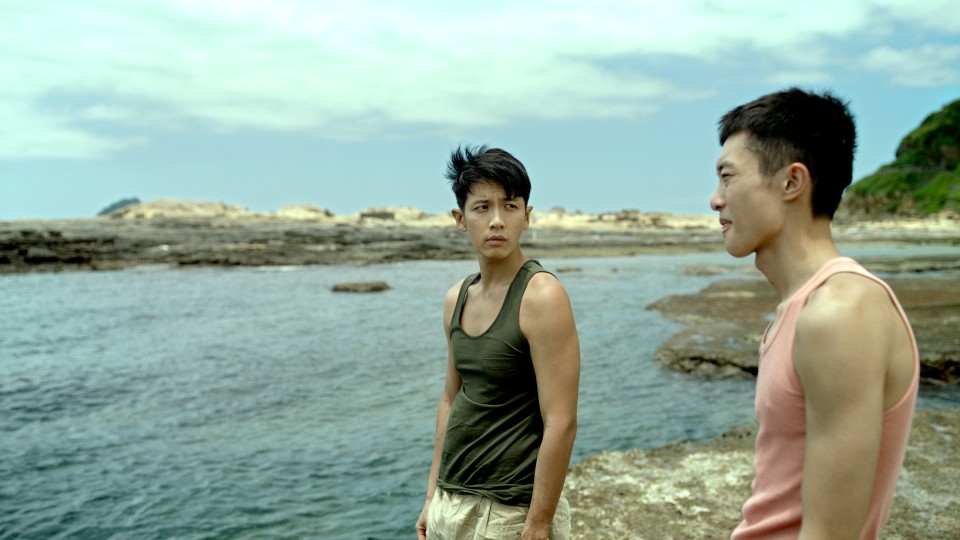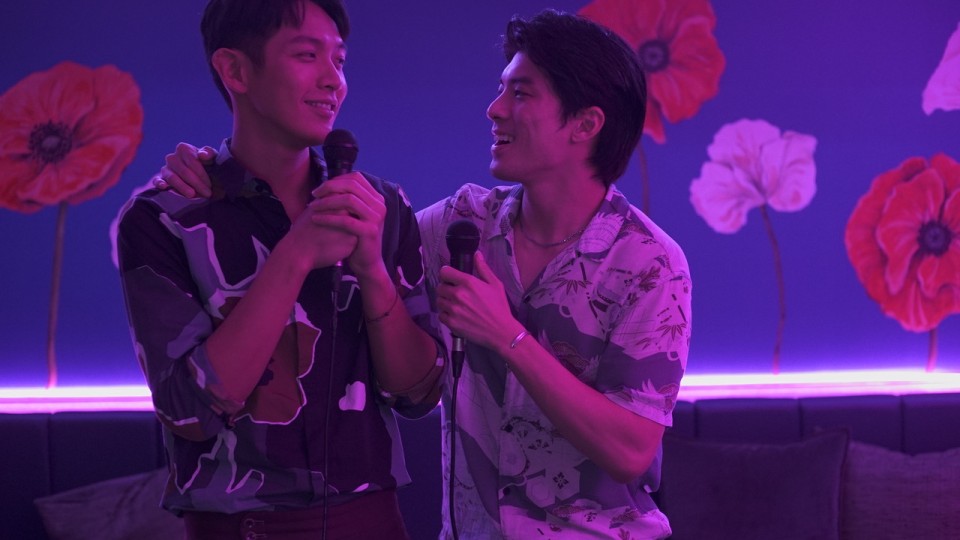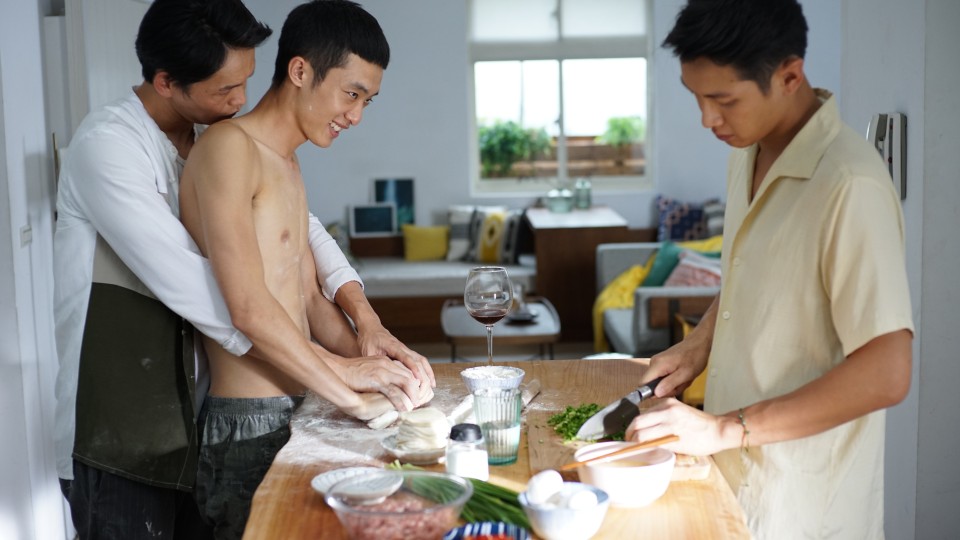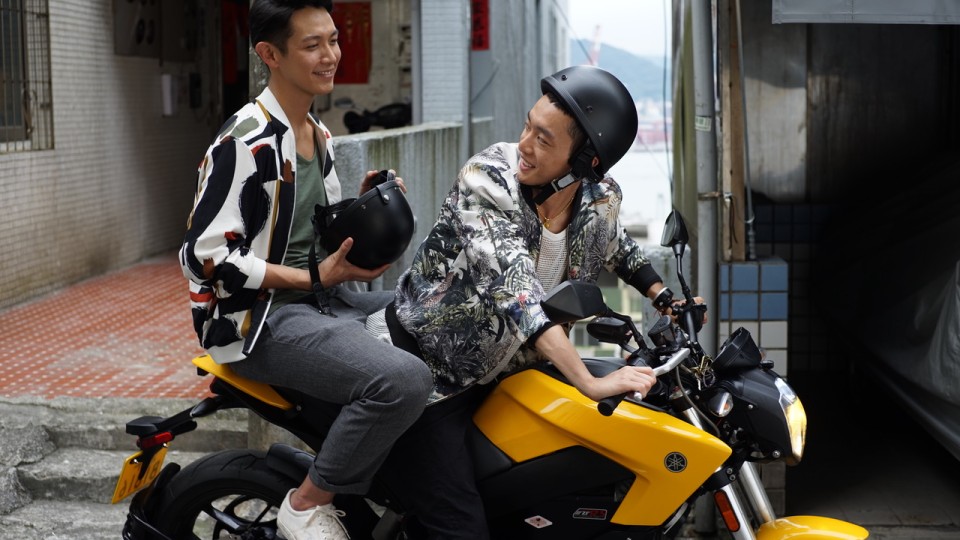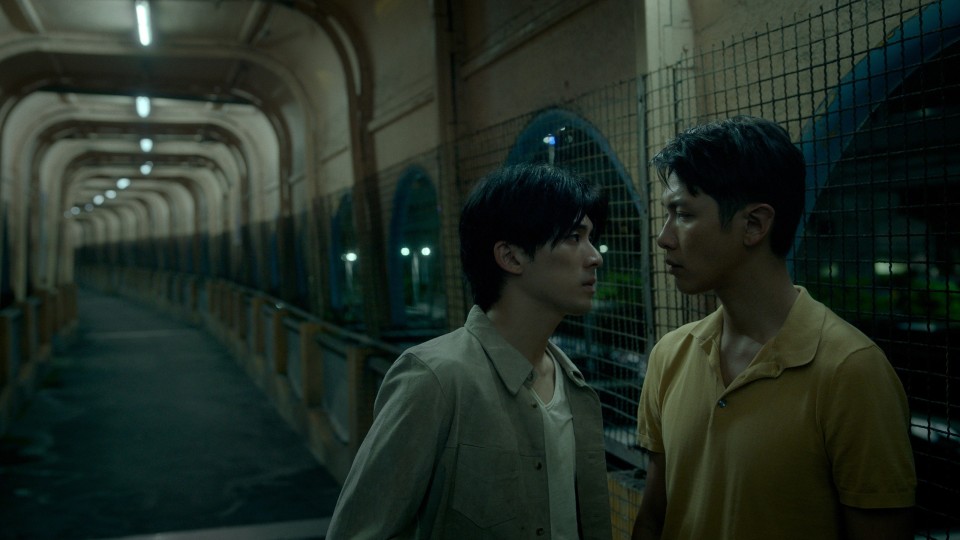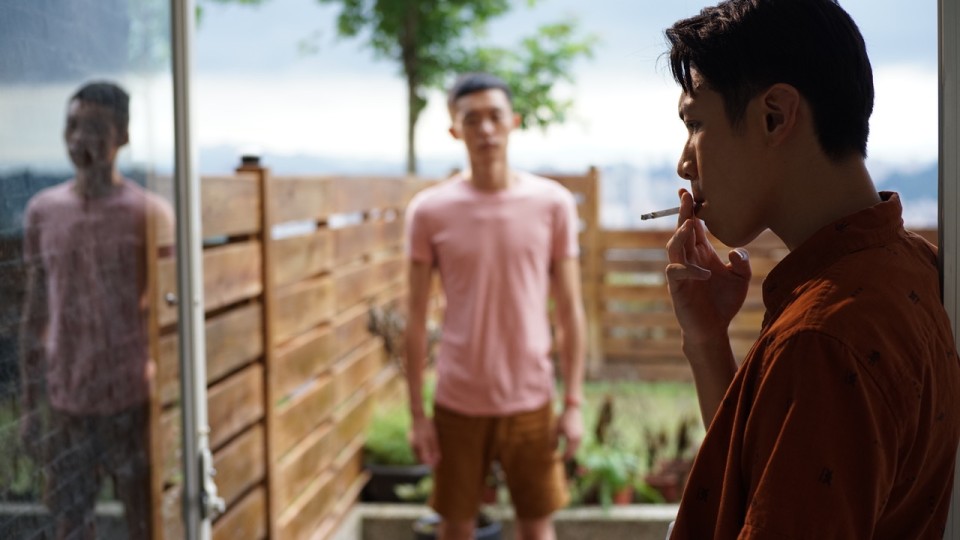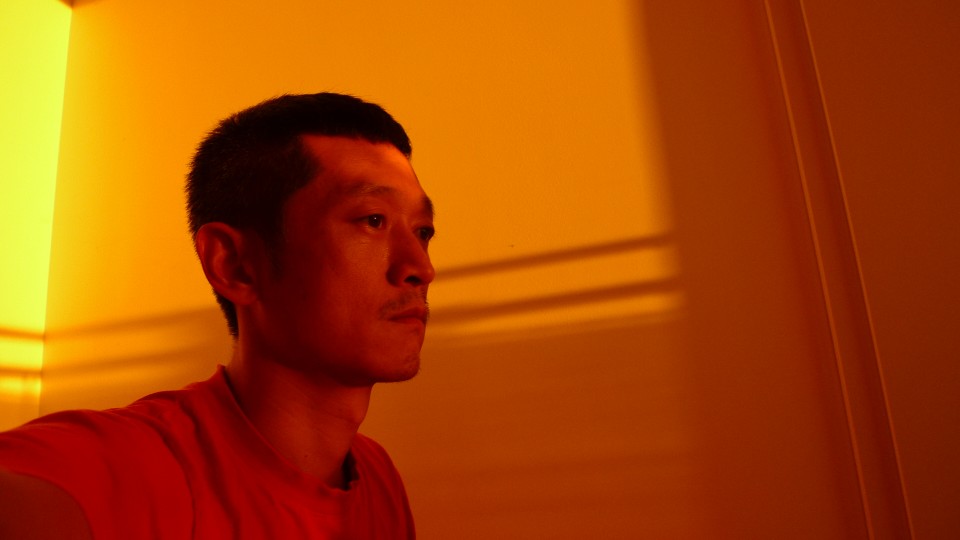Fei is a boy from the countryside. At some point he is drawn to the city, or financial necessity forces him to make the move.
His family is only too happy to accept the good money he earns as a male prostitute, but by taking this step he has sacrificed
his place in the village and in the family. C.B. Yi, in his feature film debut MONEYBOYS, depicts the desolation of not only one young man but a whole generation which can all too easily find itself in a dead end
between the financial and moral pressures exerted by society.
I would like to begin with a biographical question. You live in Austria as a filmmaker. Did you previously live in China as
well?
C. B. YI: Filmmakers with migration experience are frequently questioned about their cultural background before anything else. But
that can lead, though unintentionally, to a situation where they are perceived not through the individuality of their work
but primarily via the perspective of their origins. Essentially, I work in a variety of genres, and with various settings.
I recently finished a screenplay on a historical theme, France during the 1970s, and I’m also writing a science fiction book.
I spent my childhood in China, in a village on the coast, and my youth in a small town in Austria; during my student period
I got to know Vienna and Peking before enrolling to study at the Vienna Film Academy. I had a carefree childhood which I like
to look back on with nostalgia. The Sissi trilogy with Romy Schneider was shown in the cinema in our village; in China it
was a great success. By a strange coincidence my father had moved to Austria, and Romy Schneider came to our village. I was
fascinated by the magnificent halls, the glittering costumes and Romy Schneider’s blue eyes. Romy’s angelic smile was comforting
in the dark cinema auditorium. I was 13 before I came to join my parents in Austria. My father explained to me in a serious
voice that we had to adapt quickly in a foreign country so we wouldn’t make a negative impression. But I was a rebellious
teenager. As an immigrant you often have the feeling that you only have one foot in the culture and lifestyle surrounding
you. This ambiguity puts you in the position of an outside observer: you learn to watch, to adapt, to reflect on what you
have seen and to sneak yourself in. I very much wish I could say it’s like the element of water in Taoism: it has no fixed
form but freely changes shape to surmount all obstacles.
Was it always clear that your feature film debut would be set in China?
C. B. YI: The fact that I set the story in China is mainly due to personal reasons. Growing up in the Chinese countryside is bound
up with so many experiences which are not so present for me on the basis of my life in Europe; I carry them with me like a
mother tongue that you haven’t spoken for a long time. For me, to focus on the world of my home country gives my work a feeling
of familiarity and security, because I sense a special connection to the people, their peculiarities and their conflicts.
It’s probably also important for someone to come to terms with his origin at some point in his artistic career.
It’s your first feature film. Did you work with professional actors or a mixed cast?
C. B. YI: I cast both non-professional and professional actors for the leading roles. My position was that if Fei were not to be portrayed
by a non-professional, then it would have to be a very talented and experienced professional actor. The Taiwanese star Kai
Ko was one of my favorites for the role of Fei. Kai Ko is an actor with immense gifts. He’s the kind of actor who immediately
plunges into a role as soon as you call “Action”. His first takes were always the best. JC Lin, Yufan Bai and Chloe Maayan
are also talented and were able to work without much intervention on my part. Thanks to the fact that the main actors worked
so independently, I could employ my time and attention on the set to focus on the work of the supporting cast, most of whom
I met for the first time when we started shooting. I worked mainly with professional actors in MONEYBOYS. When I’m casting
I pay particular attention to the voice. In fact, I often find the voice more important than the face. That’s what often creates
an immediate relationship – perhaps because we were able to hear as unborn babies before we could see and recognize faces.
MONEYBOYS begins as a love story between two young men and gradually develops from the individual level to a collective approach, from
the family to the social level in the city/rural divide, ending up posing fundamental existential questions. You also wrote
the screenplay. How did the writing process develop over time?
C. B. YI: It’s certainly true that the project developed from the general to the particular. While I was on an exchange program in
Peking I made friends with several drama students. Many of them had no money at all. In the hope of making their dream of
becoming actors come true, they were forced to find Sugar Mummies and Sugar Daddies who would finance their studies. One of
my friends worked secretly in the sex trade to pay his mother’s hospital bills. I was impressed by the sacrifices he made.
I discovered that many sex workers sell their bodies secretly for the benefit of their families – a sacrifice that they have
to keep secret from their nearest and dearest. That brought me to the question: what does a person really live for? In China
Confucianism gives the answer “filial piety”, which means honoring your father and mother, your ancestors and ultimately the
“mother state”. The word “tradition” is used in Austria in virtually the same way. Even though perhaps not many people today
would claim they are living for the tradition of the family or the state, we often remain loyal to certain ideas which prevent
us from becoming happy.
Initially I wrote a screenplay for a documentary about five sex workers and how they handled the social pressure from their
families while still feeling bound to them. I realized after several conversations with my professor, Michael Haneke, what
a huge responsibility it is to put real sex workers in front of the camera. So I transposed their separate life stories into
a feature film. That also gave me the artistic freedom to focus the various experiences in order to concentrate on the essential
problems.
Key scenes, like those with the relatives in the village, the wedding with Lulu, and the young couple saying farewell to their
friends, often take place around a table. Why?
C. B. YI: Eating is a necessary activity, and in all cultures it has a ceremonial function too, but eating together is particularly
fundamental to Chinese culture. As a result of better standards of living in recent times, meals are again cultivated and
celebrated in China. At the meal table people exchange views, make important decisions and say farewell. A round table often
facilitates the feeling of congeniality and unity among the diners. But behind this image of unity the hierarchies, conflicts
and differences are often exposed all the more clearly.
To what extent was the aesthetic decision to film with long takes connected with the idea that things in life take their own
course without our being able to influence them?
C. B. YI: Often a scene that uses a lot of different shots and cuts is like a conversation where you constantly look away to avoid
the intimacy that arises if you gaze steadily into another person’s eyes. Long takes force the viewer into the position of
an observer: the characters in the film are exposed to his gaze. The dynamic of fast cuts may more quickly distract you from
the fact that you’re sitting in a cinema auditorium, but you are only superficially drawn into the action, and you aren’t
really able to feel it. I think it’s exciting to arrange the characters in a long take and have them interact in such a way
that various views and shades of interpretation arise during the course of the scene. That makes it possible for visual dynamics
and scenic variations to develop without the emotional continuity of the scene being interrupted.
The long takes certainly do have something to do with defining power or agency, as you suggest. My intention is to focus attention
not so much on one individual and his decisions but on the network of shifting positions and relationships which surrounds
the individual. In a long take small changes in the distance between the individuals can create very different moods, exercising
subtle power or triggering erotic attraction, shame or fear. The decisions we make in life are derived from these areas of
power and passion, attraction and repulsion. But the submission to fate that you refer to, the idea that things take their
course without our being able to influence them, is more the belief that Fei clings to, which doesn’t permit him to perceive
the opportunities available for him to be happy. This fatalism isn’t necessarily the message of the film. In fact, it’s much
more the opposite. For me, the last scene of the film makes a particular appeal in that direction. I’m interested in the sensation
of being exposed – to life, to the perceptions of other people
or to the eye of the camera. We often live for the perception
of other people: our families, our lovers or our enemies. When somebody is weeping, even if he is alone, he often secretly
wonders how it would be if someone were to see him weeping. That’s why I also find silence important in many of the scenes.
A real connection seldom arises between people when they are talking the whole time. It only comes into being when people
suddenly stop babbling and feel each other. In silence. And then you suddenly know: That was it. That’s the last time we’ll
ever see each other. Or: this is the beginning of a great love.
What did it mean in practice to film using long takes? How did you prepare the long scenes with the actors, and particularly
with the cameraman Jean-Louis Vialard?
C. B. YI: A lot of it is about creating a secure environment and free space so they can lose themselves in their roles. Usually I have
long conversations with the cast about their roles. When I realize we’ve reached the stage where they have an intimate feeling
for the role, I give them “permission” to be that character from now on. A bit like an initiation. Then, when we are shooting,
I don’t have to provide much more instruction: I can concentrate instead on the small details, the gestures, the looks, as
they come over on camera, checking whether the intensity of the lived moments are perceived by the camera and the film image.
When the location has been decided we discuss the camera movements once. And then, during shooting, very little is changed.
On location I generally work out a concept for the framing with Jean-Louis very quickly. So I don’t plan those things a long
time in advance; instead, I decide them there and then. Jean-Louis and his team are always well-prepared and can react quickly.
In any case, as a director the point isn’t so much being able to do everything, being the cleverest; it’s about gathering
the right people around you for everything. That’s why I recently founded a production company with my French companion Antoine
Sorange, under the name Chengefilm, so we can efficiently produce good films with people who have a similar approach.
MONEYBOYS raises the essential question of what it means in the capitalist system to sell your body or yourself. Everybody is a “money
boy” in his own way, and for Fei and people of his generation it seems that no decision is the right decision.
C. B. YI: This question is actually addressed explicitly. If somebody toils in a leather factory in order to feed his family, isn’t
he being forced in exactly the same way to sell his body? In capitalism everything becomes a commodity: a person’s lifetime,
his body, his being. We know that, but we’d rather not know it. I’m not trying to say that every kind of wage labor is the
same: working in an office is completely different from working in a leather factory or working as a prostitute. Certain groups,
like sex workers, are exposed to physical and psychological force to a particular extent. Clearly this is partly due to the
perception that sex workers are selling not only their time but also their bodies as consumer goods – as things which can
be owned, used and replaced.
Interview: Karin Schiefer
July 2021
Translation: Charles Osborne

